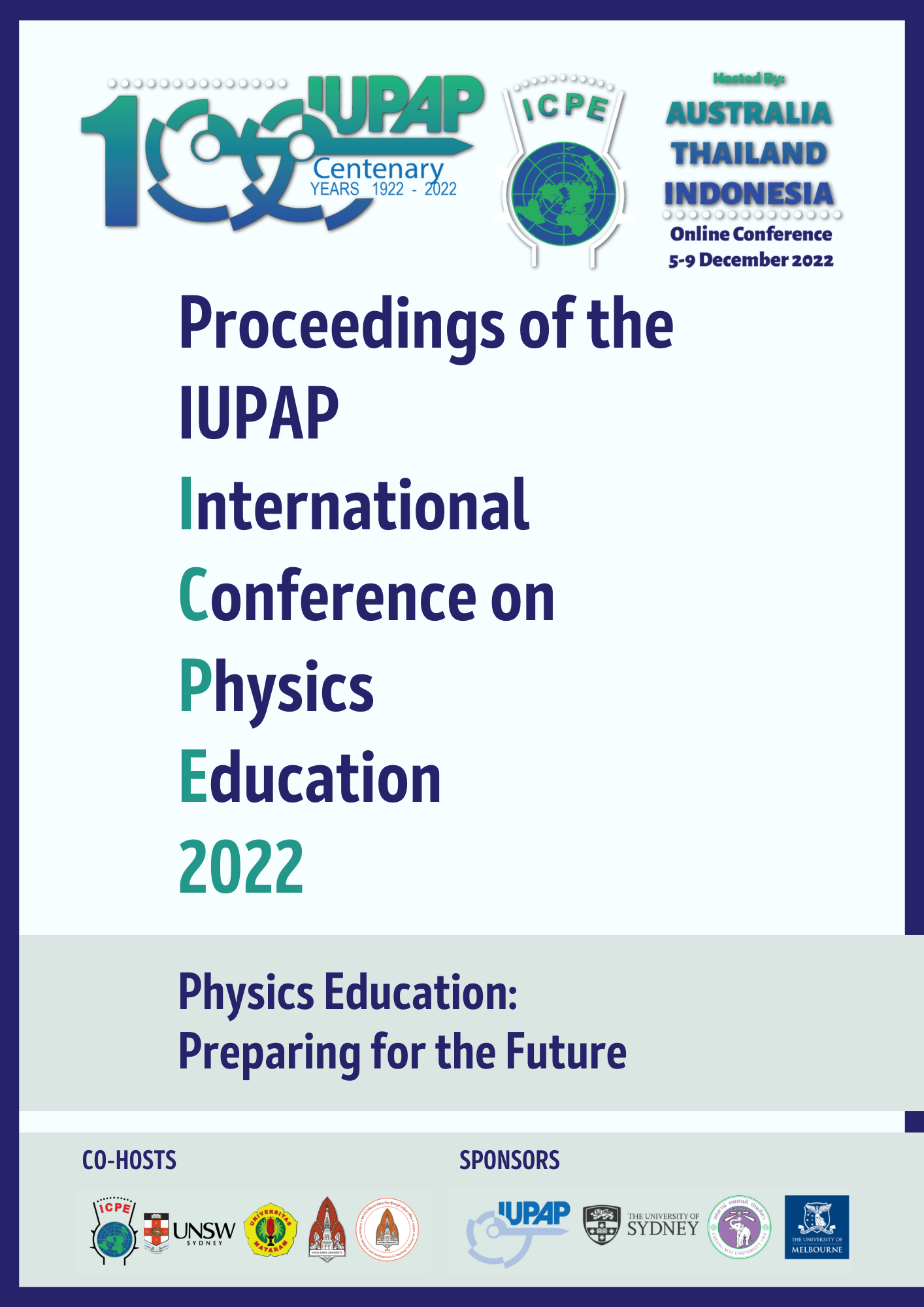“What do I get out of It?”
Characterising students’ main takeaways from a physics class for non-STEM students
Keywords:
Science Literacy, Socio-Scientific Issues, ContextualizationAbstract
For science students, physics classes offer students the physics knowledge they will need for their future science careers. What benefit, therefore, do non-science majors get from taking general education physics courses? In the study we are presenting, we investigated what non-science students find the most valuable from a general education physics class. We evaluated students’ responses to a quiz question asking them to articulate the two most important, interesting, or valuable things they learned from the course. We created a coding scheme to place these takeaways into the following categories: Scientific Content, Scientific Epistemology, Societal Applications, Underrepresentation in Science, Science Attitudes, and Pedagogy and Learning. We investigated how students’ relationships with science (such as through their majors or self-reported attitudes towards science), course performance, and demographic information relate to the types of takeaways they report.
Preliminary results show that Scientific Content is the most common type of takeaway that students report across two semesters, with slightly more reporting of Scientific Content takeaways during a fully remote semester of instruction. However, in both semesters, over half of all student takeaways fell into categories other than Scientific Content. This result suggests that there are a variety of ideas from this course that may strongly affect non-science students, not just ideas relating to physical principles.
Downloads
Published
Issue
Section
License
Authors who publish with the Proceedings of the International Conference on Physics Education 2022 agree to the following terms:
a) Authors retain copyright and grant the journal right of first publication with the work simultaneously licensed under a Creative Commons Attribution License (https://creativecommons.org/licenses/by/4.0/) that allows others to share the work with an acknowledgement of the work's authorship and initial publication in this journal.
b) Authors are able to enter into separate, additional contractual arrangements for the non-exclusive distribution of the journal's published version of the work (e.g., post it to an institutional repository or publish it in a book), with an acknowledgement of its initial publication in this journal.
c) Authors are permitted and encouraged to post their work online (e.g., in institutional repositories or on their website) prior to and during the submission process, as it can lead to productive exchanges, as well as earlier and greater citation of published work (See The Effect of Open Access - http://opcit.eprints.org/oacitation-biblio.html).
Privacy Statement The names and email addresses entered in the Proceedings of the International Conference on Physics Education 2022 site will be used exclusively for the stated purposes of this journal and will not be made available for any other purpose or to any other party.
